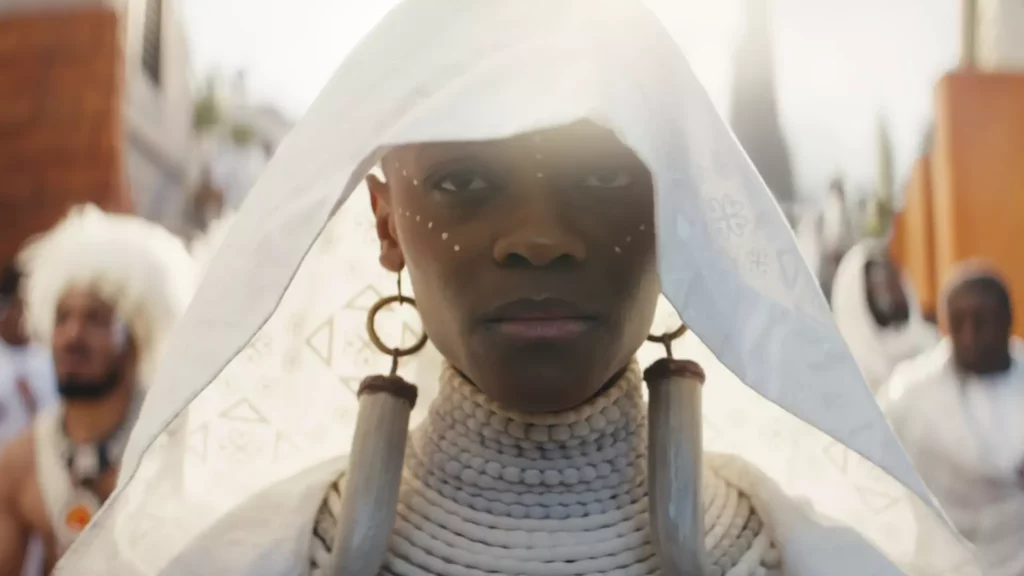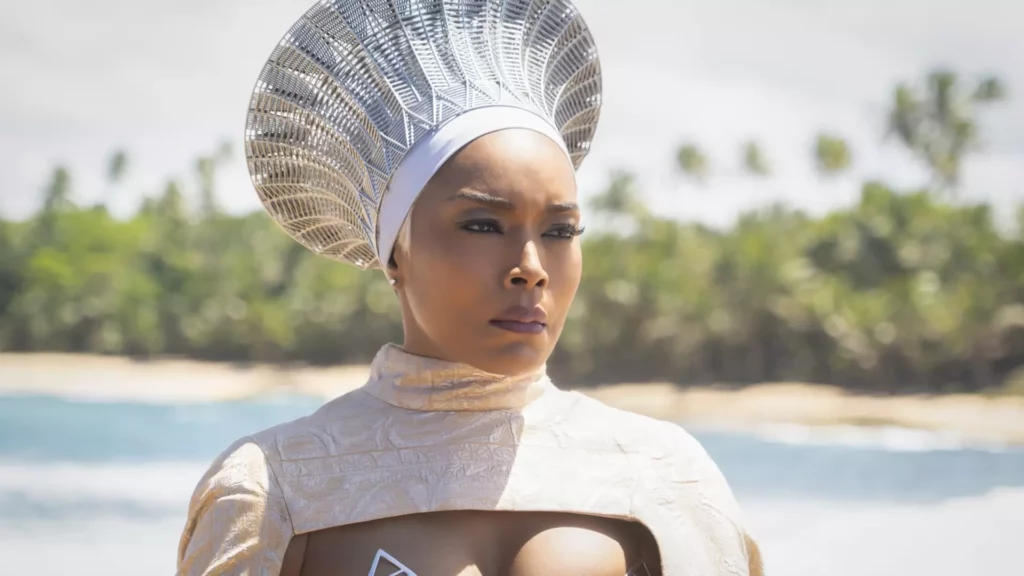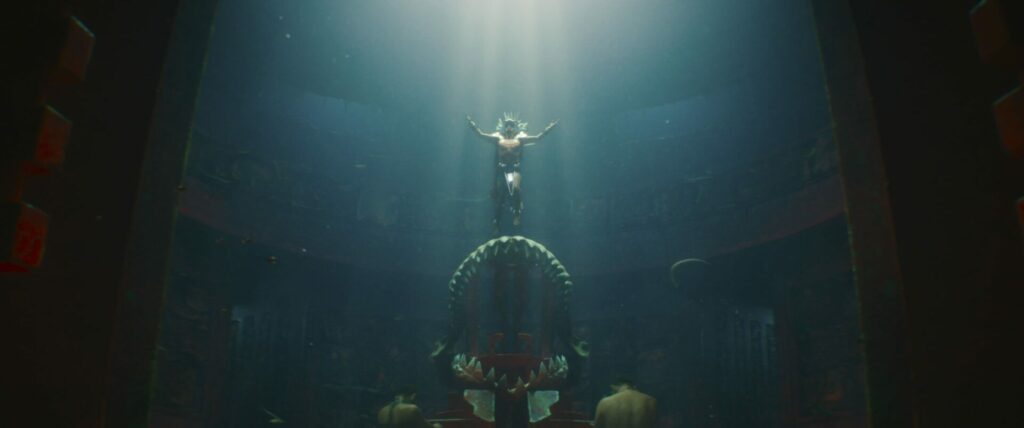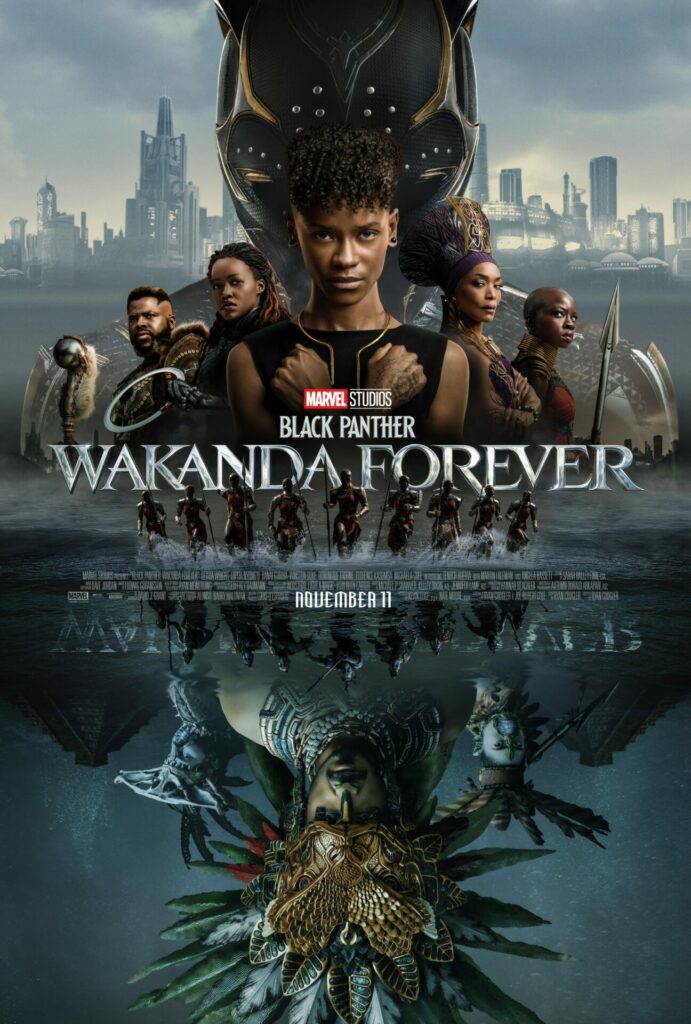Black Panther: Wakanda Forever Review: an emotional and respectful tribute
The sequel to 2018's Black Panther pays tribute to and honours the late Chadwick Boseman.

Black Panther: Wakanda Forever has more than one unenviable task weighing upon it. One is a question that has been asked countless times since the passing of Chadwick Boseman – who is the next Black Panther? Another is, how do you build on the success of 2018’s Black Panther, still the only Marvel film to have won any Oscars (three) And also, how do you move past the iconic role that Boseman established?
Wakanda Forever tackles that last question head-on. The film’s opening minutes see T’Challa pass away off-screen. Even before the opening Marvel logo plays, this time featuring a touching tribute to Boseman, the film is heavy in palpable grief. But there is also joy and celebration for the man who even in death is a hero as a man and character.
Ryan Coogler, who once again brings stunning visuals and cinematography from the get-go, gives both the cast and audience time to grieve. He’s made a choice to pay respect to Chadwick rather than try and gloss over his absence. It speaks to the legacy Chadwick has left, again in our world and the Marvel Cinematic Universe. Indeed, Chadwick’s presence is felt throughout the whole film. Barely a scene goes by without some reference to him that never feels shoehorned, always respectful.

The majority of the film takes place one year after T’Challa’s passing. Wakanda, the fictional African nation, is without its greatest protector and finds itself embattled on all sides. While Queen Ramonda, heartbreakingly played by the commanding presence that is Angela Bassett, is quick to dispatch Wakanda’s supposed allies such as France and the United States, another nation poses an even greater and more formidable threat – the hidden undersea nation of Talocan and its ruler, Namor. Wakanda and Talocan have a troubled history in the comics and things don’t go swimmingly here. Namor is the ruler of Atlantis in the comics, but wisely the film has changed the underwater nation to distance itself from the DC equivalent, Aquaman.
Coogler does a good job, as he did in 2019, with establishing a new world for the audience and giving it just enough backstory to allow us to care, if only a little, when it comes to the film’s climax. A near three-hour runtime could be exhausting but here it feels justified. Visually, Talocan is markedly different from Wakanda but figuratively they are pretty similar with characters from each nation mirroring one another.

Tenoch Huerta is not the same level of antagonist as Michael B. Jordan’s Killmonger. In fact, he only really becomes an antagonist in the film’s second half. But he brings the defensive and quick to antagonise Namor, the Sub-mariner to life, winged feet, green swimming trunks and all. While Namor may not be the most familiar Marvel superhero to the general public, he is in fact Marvel’s first superhero (alongside the original Human Torch), first appearing in 1939. Also, our second confirmed mention of the word ‘mutant,’ hinting at what’s to come further down the line.
Letitia Wright returns as Shuri, T’Challa’s sister and the daughter of Ramonda. Anti-vaxxer controversy aside, the film makes it very clear in its introduction that Shuri is the main character here. Wright plays the young princess learning how to grieve with heart and demands the audience’s attention. Danai Gurira and Winston Duke both reprise their roles as Okoye, the head of the all-female force, The Dora Milaje, and M’Baku, the head of the powerful Jabari tribe. Both provide a much-needed sense of levity to the film and both are enjoyable to watch.

In Dominique Thorne, who debuts in the MCU as RiRi Williams, Marvel has found a scene-stealing brilliant, who provides many a laugh as well as a resounding air-punch becoming a superhero moment. It bodes well for the upcoming Ironheart series. The future of the MCU looks bright with her in the helm.
Michaela Coel’s introduction as Aneka, canonically queer as she is in the comics is notable, but she isn’t given much to do and is missing for a significant portion of the film’s final act. We’re once again treated to a fleeting queer interaction in the MCU, between Aneka and her Dora Milaje partner, Ayo (Florence Kasumba) which may once again leave LGBTQ fans feeling slightly bitter.

Wakanda Forever is not the most ground-breaking of the Marvel films, certainly not as much as Black Panther. It comes with the usual action set pieces we’ve come to expect from the MCU. But what is striking about the film is that it’s a study of grief and how people deal with that. Some lash out in rage and vengeance, some turn to faith, while others bury their heads in the work. Every character goes on a journey with their grief at T’Challa’s passing. The performances are raw with emotion and therefore shine as a result of the actors harnessing their own grief.
“He was my king and Black Panther to everyone,” says a teary Nakia (Lupita Nyong’o) partway through the film. It’s a sentiment no doubt felt by many. Black Panther: Wakanda Forever succeeds in honouring the man.
4/5
